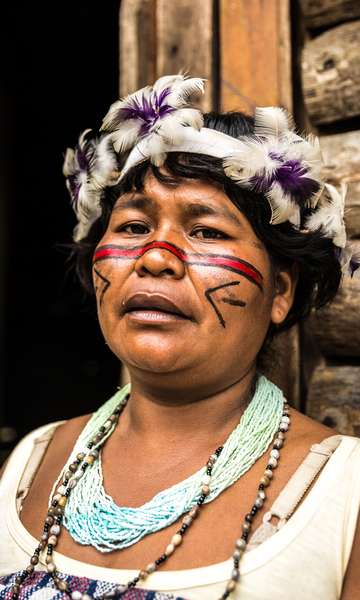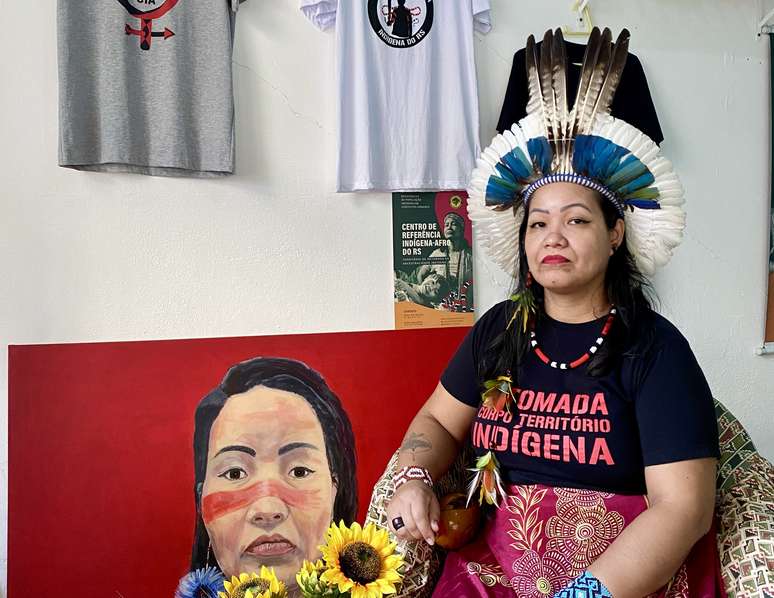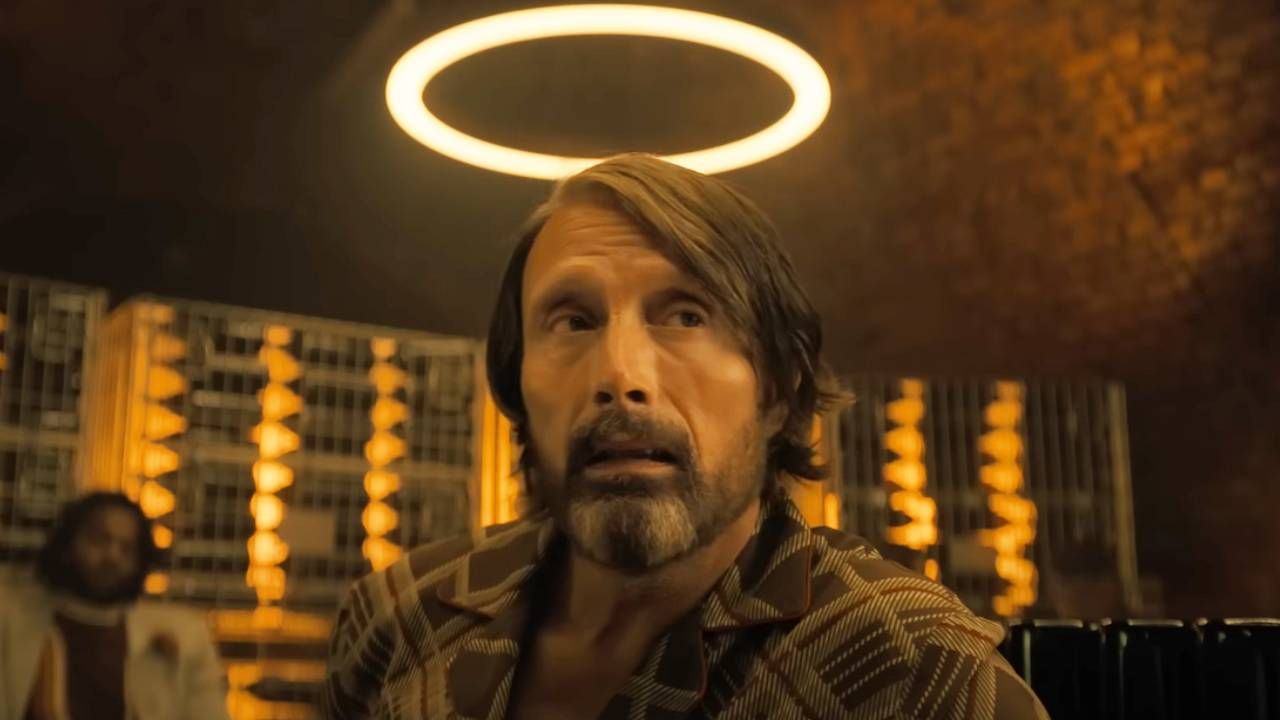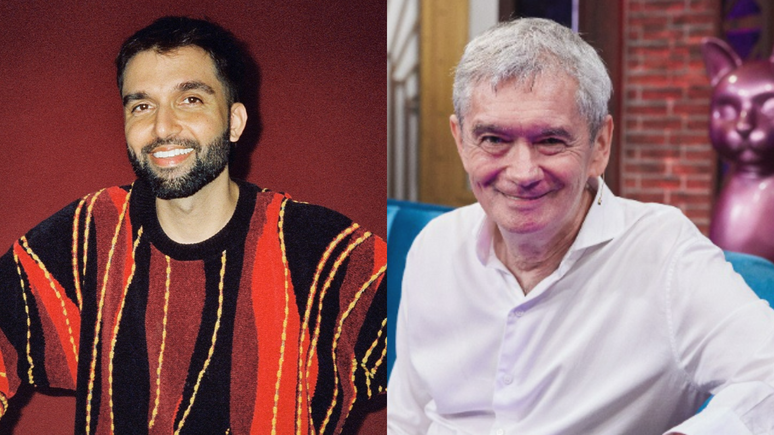Guarani leader Kerexu Takuá says the goal is to be present at Campo Terra Livre with the flags of Brazil’s 305 indigenous ethnic groups
Summary
Kerexu Takuá is a Guarani indigenous person, one of the main organizers of the resistance to the fundamental rights of the people around him in Porto Alegre (RS). He is one of the voices of the mobilization of the Terra Livre Camp, which brings together 6 thousand indigenous people with the theme “Our point of reference is ancestral, we have always been here”.
Rio Grande do Sul organizer and indigenous leader, Chief Kerexu Takuá, 42, says energetically that she “resists every day.” As a woman, she is an indigenous Guarani, engaged in activism since she was 12 years old, her aim is to fight for housing, health, education and other fundamental rights for the people around her, in Porto Alegre .
“Every day I get up and resist. And, at 42, I have to resist to exist, ”she says in an interview with Earth WE. It is also a voice present in the ATL (Campo Terra Livre)the largest mobilization of the indigenous movement of Brazil, which begins this Monday (22), in Brasilia.
20 years of mobilization
The ATL turns 20 and this year plans to bring together around six thousand indigenous people under the theme “Our point of reference is ancestral, we have always been here”.
Land demarcation is a long-standing demand of indigenous peoples, whose progress faces internal government disputes and has dragged on for years. For example, the Kariri-Xokó people, of the Kariri-Xokó indigenous land, waited more than 40 years for approval to be signed by President Lula (PT).
“In addition to the issue of the climate crisis, there is the delimitation of 33 territories promised in last year’s ATL,” the chief recalls.
He also comments that other demands intersect with the struggle for land and housing, including access to vaccinations and mental health care, encouragement of indigenous artisan women, progress in keeping indigenous people in public universities , among other policies that will be discussed in ATL. .
“Unfortunately we continue in the same battle, the faults are the same. We want respect, we want public policies, access to non-exclusive education, especially university education. Simply placing quotas does not solve the problem,” underlines Kerexu – who in 2018 was the first indigenous woman to enter the Affirmative Action system at the Federal University of Pelotas (UFPel), in the Pedagogy course.
In his leadership career, he coordinated the only Rio Grande do Sul Indigenous Reference Center, space of resistance that celebrates ancestral traditions. The leader highlights the collective work to build the site and the actions carried out in Aldeia by Jurema.
Basic sanitation and mental health
“We are talking about extreme poverty, there are no basic sanitation services. I know the situation of the territories with which I am linked. We fight every day to have a minimum of dignity. For example, we had to install hoses and water tanks,” she explains. For her, the “savage” is the one who destroys nature and water resources.
Another pressing issue for the indigenous population was mental health. According to a study published by the journal The Lancet Regional Health, in 2000 the suicide rate among indigenous people in Brazil reached 9.3 cases per group of 100 thousand individuals. This number, already high, has doubled in 20 years, with 17.6 per 100 thousand in 2020.
“We do not have a public mental health policy aimed at indigenous peoples. We must take care of our mental health, especially when we go to university and other places that make us sick, because they reject us and abuse us on a daily basis,” says the head doctor.

The 7 biggest lies you’ve ever heard about indigenous people
Indigenous people are not all the same
Indigenous peoples are sometimes placed in a common place, where each people has its own singularities, traditions and needs. In ATL, the manager comments that the idea is to arrive in volume, with the flags of the 305 ethnic groups.
“Indigenous peoples want to be listened to and respected in their specificity and diversity, we are 305 ethnic groups, 274 languages. We are not all the same.”
There are 305 voices that need breadth in spaces of power. According to the boss, there will be no turning back. “We will occupy these spaces of power [Brasília e eventos governamentais]carrying our maraca [instrumento musical indígena] and our headdress. Spaces for discussion that concern us, without any of us, ever again”, argues Kerexu.
“And with my territory-body I also delimit my right to exist as an indigenous woman, the right to exist of my children and my relatives [demais indígenas de outras etnias]”, he finishes.
Source: Terra
Rose James is a Gossipify movie and series reviewer known for her in-depth analysis and unique perspective on the latest releases. With a background in film studies, she provides engaging and informative reviews, and keeps readers up to date with industry trends and emerging talents.







